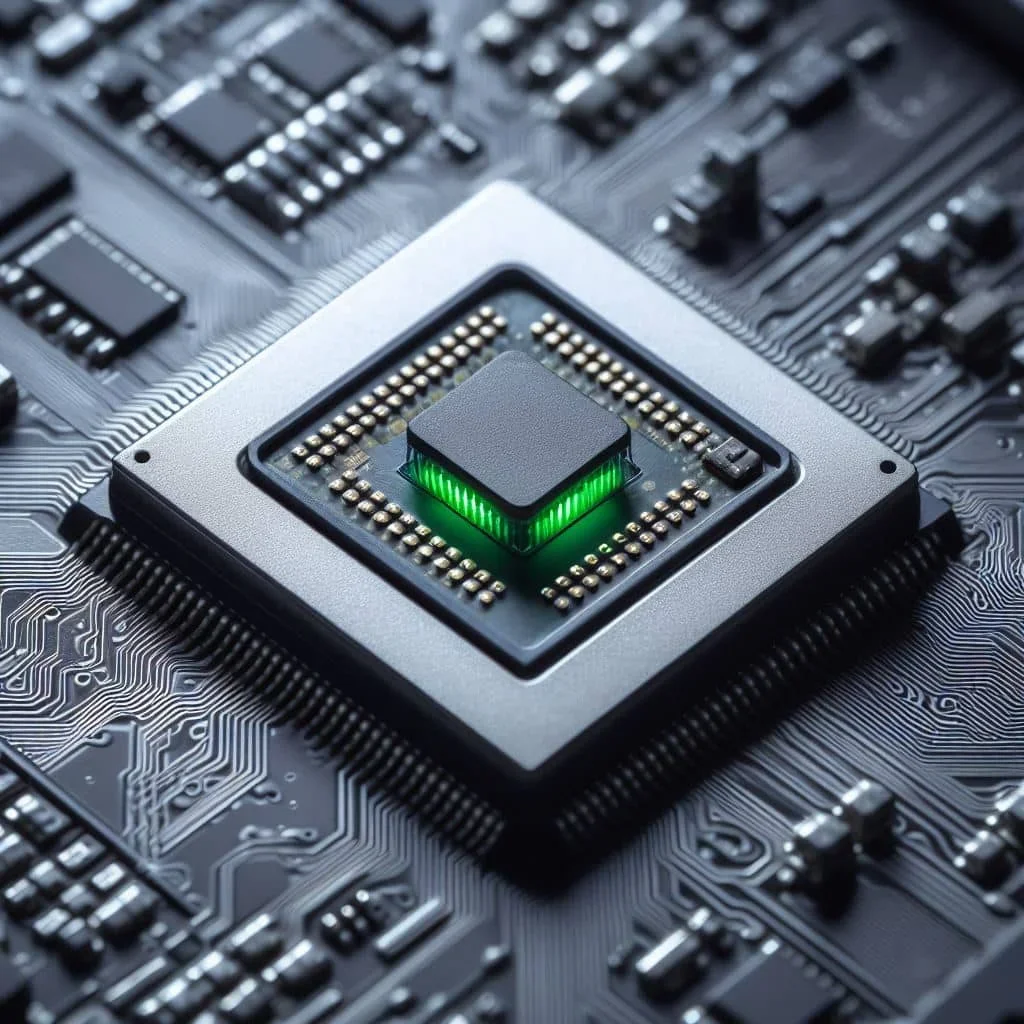AMD Protocol Security Processor: What Is It and How Does It Work?
- What Is the AMD Protocol Security Processor (PSP)?
- How Does the AMD PSP Work?
- Why Is the AMD PSP Important?
- Comparison with Other Hardware Security Technologies
- Future of AMD PSP and Processor Security
- Conclusion
AMD's processor technology has evolved significantly in recent years, and one of the most important advancements has been the integration of the Protocol Security Processor (PSP). This small but powerful chip ensures system security and integrity by protecting data and preventing external attacks.
In this article, we will explore in detail what the AMD PSP is, how it works, and why it is so relevant in modern security architecture.
What Is the AMD Protocol Security Processor (PSP)?
The AMD Protocol Security Processor (PSP) is a security chip integrated into Ryzen and EPYC series processors, designed to handle specific hardware-level security tasks. The PSP is essentially a "processor within the processor," operating independently from the main CPU to manage critical security functions.
Purpose of the AMD PSP
The PSP's mission is to provide a secure environment for the system by protecting sensitive data and ensuring software and hardware integrity. This is achieved through encryption and authentication techniques that safeguard sensitive information and system operations from external threats.
Key tasks of the PSP include:
- Encryption key management
- Secure Boot
- Memory encryption (AMD Memory Guard)
- Firmware integrity verification
Through these processes, the PSP helps keep the operating system and other applications protected from malicious attacks that attempt to compromise the system.
How Does the AMD PSP Work?
The AMD PSP operates as an independent unit that interacts directly with memory, firmware, and other hardware components. Its architecture is based on an ARM Cortex-A5 core, running its own firmware and having exclusive access to specific memory areas to protect confidential data and manage encryption keys.
Main Security Functions of the PSP
Here are some of the most important security features provided by the AMD PSP.
1. Secure Boot
Secure Boot is one of the PSP's most critical features, ensuring that the operating system and firmware load in a secure and verified environment. During boot, the PSP verifies the integrity of the firmware and boot code, ensuring that they have not been altered or compromised. If it detects any suspicious modifications, it can halt the boot process to prevent the system from running in an unsafe environment.
2. Key Management and Cryptography
The AMD PSP manages the encryption keys used in the system. This is crucial for applications handling sensitive data, as the PSP can generate, store, and protect encryption keys without allowing the main CPU direct access to them. This task separation limits the chances of an attacker accessing sensitive information, even if they manage to compromise the operating system.
3. AMD Memory Guard (Memory Encryption)
AMD Memory Guard is another security feature provided by the PSP, enabling system RAM encryption. This function is especially useful for protecting data if a device is stolen or lost, as any attempt to directly read the memory would be futile without the encryption key, which is securely stored within the PSP.
4. Firmware Validation and Control
The PSP is also responsible for verifying the authenticity and integrity of system firmware. Through this function, the PSP ensures that any firmware update or modification is authorized and does not pose a security threat. This control helps mitigate attacks exploiting firmware vulnerabilities, such as firmware-based malware.
Why Is the AMD PSP Important?
The increasing sophistication of cyberattacks has pushed processor manufacturers to adopt increasingly robust security approaches. AMD has responded to this need by implementing the PSP, which acts as a security stronghold within the hardware, ensuring that user data and critical system operations remain protected.
Key Benefits of the AMD PSP
Some of the most notable advantages of having a PSP in AMD processors include:
- Security from boot: By verifying firmware and protecting the boot process, it prevents attackers from loading malicious code in the system’s early stages.
- Protection of sensitive data: With key management and memory encryption, confidential data remains secure at all times.
- Minimal impact on CPU performance: As an independent chip, the PSP allows security tasks to be handled without overloading the main CPU, maintaining optimal performance.
Disadvantages and Controversies
Despite its benefits, AMD's PSP has also faced criticism. Some security enthusiasts argue that any hardware-embedded security technology could become a risk if a vulnerability is exploited. Additionally, some users express concerns about the lack of transparency in the PSP’s operation, as it runs autonomously and its full code is not always disclosed.
However, AMD assures that the PSP is continuously audited and that its functions are secure. The company also allows users to disable certain PSP functions in advanced settings, though this may limit some security features.
Comparison with Other Hardware Security Technologies
AMD’s PSP is not the only security technology of its kind on the market. Intel, for example, implements the Intel Management Engine (ME), which provides similar functions to the PSP, including key management, Secure Boot, and firmware verification.
However, AMD’s approach with the PSP differs in several aspects, such as the independence of the security core and the level of user control over its functions. Below is a comparison:
| Feature | AMD PSP | Intel ME |
|---|---|---|
| Secure Boot | Yes | Yes |
| Memory Encryption | Yes (Memory Guard) | Yes, but limited to certain CPUs |
| System Autonomy | Yes, based on ARM Cortex-A5 | Yes, previously based on Quark |
| User Control | Greater control over functions | Less control over deactivation |
Future of AMD PSP and Processor Security
Hardware-level security will continue to evolve over time, and AMD’s PSP represents an important step in this direction. As new threats emerge and systems become more complex, AMD and other manufacturers will likely continue enhancing these security processors to provide an increasingly secure environment.
Additionally, AMD is working on improving memory encryption and incorporating artificial intelligence into its future chips, allowing PSPs to anticipate potential threats and adapt their security methods in real-time.
Conclusion
The AMD Protocol Security Processor is an advanced technology that significantly enhances security in modern systems. By independently handling critical security functions, the PSP allows users to protect their data and ensure a secure working environment without sacrificing CPU performance. Although there are concerns about its transparency, the PSP remains an essential tool for safeguarding data in a world where cyber threats are constantly evolving.
In summary, AMD’s PSP is an indispensable ally for those looking to maximize their system’s security, providing peace of mind and protection against potential attacks and vulnerabilities. 🚀

Jorge García
Fullstack developer
